Zero Time
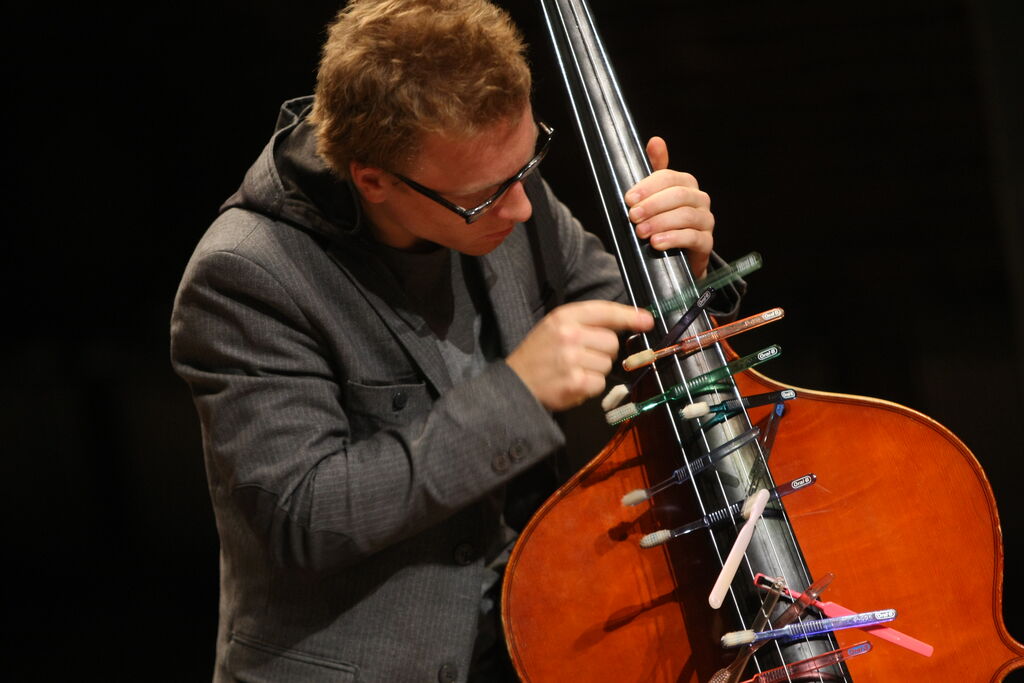
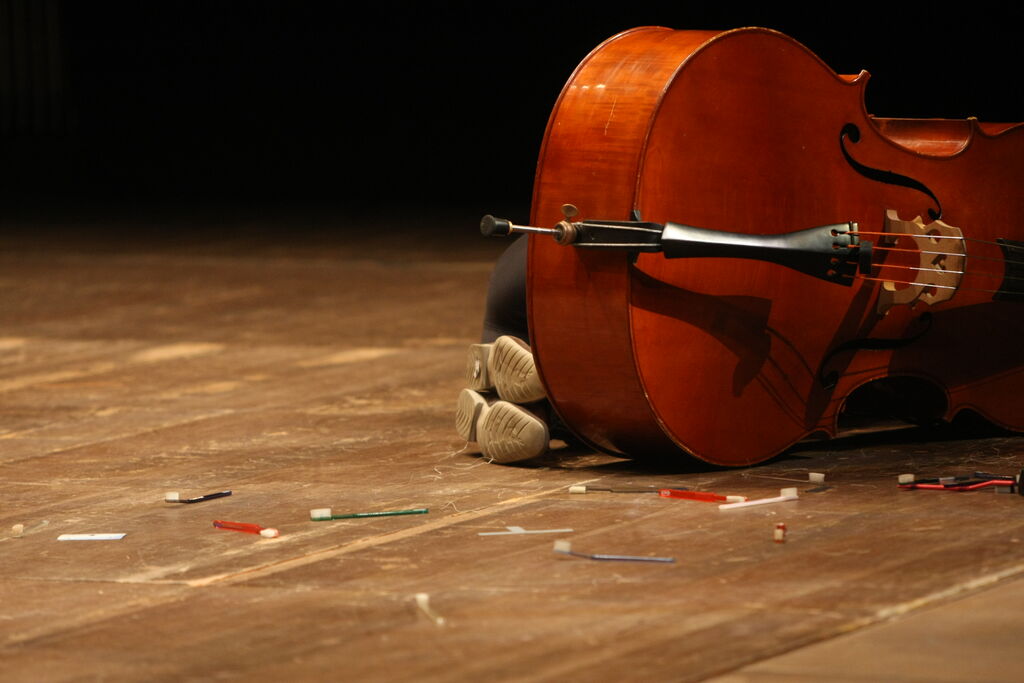
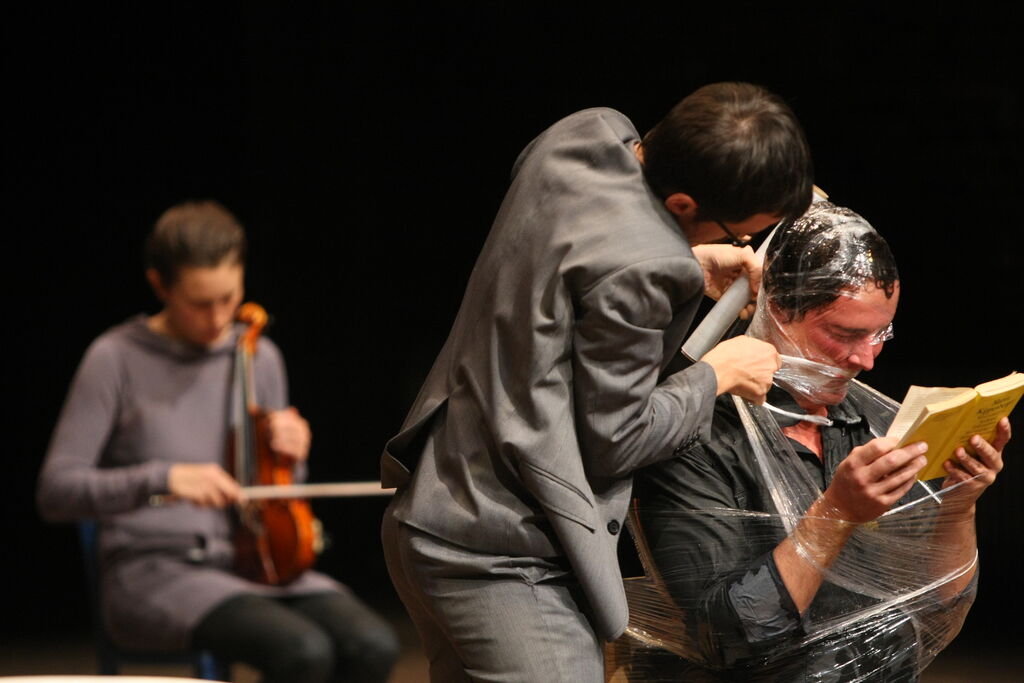
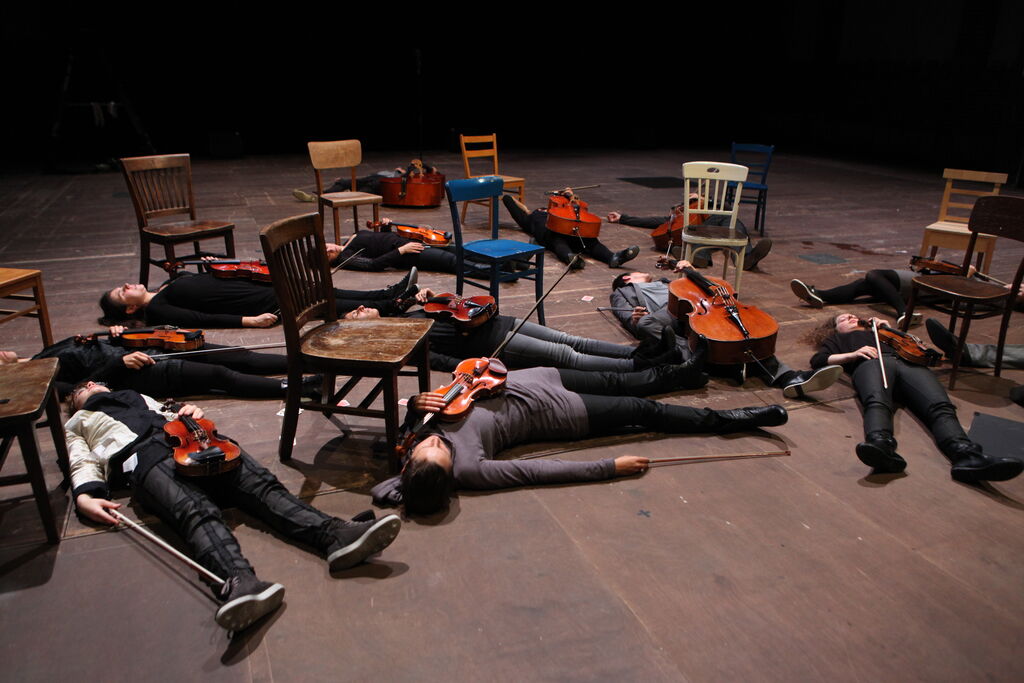
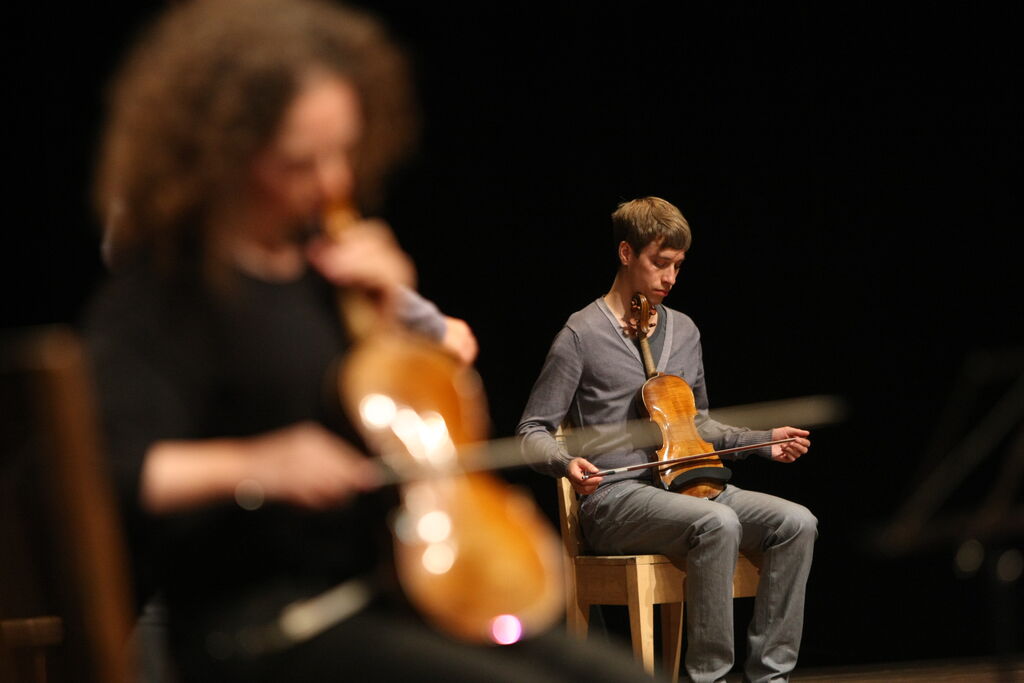
100 years Cage, 50 years Fluxus. A premiere. On the occasion of the Cage year and the 50th Fluxus jubilee the composer, director and performance artist Christian Kesten and the Solistenensemble Kaleidoskop created the concert production Zero Time.
The starting point for this is Untitled #13 (Zero Time), the new composition by Christian Kesten for Kaleidoskop. In it, Kesten investigates microtonal sound phenomena and their different projections in space. In doing so, he seeks the connection between sound and action - so instrumental activities stand on equal footing with walking, standing, sitting and everyday actions, some of which are amplified.
The term 'Zero Time' comes from a composition by Christian Wolff and means unmeasured time, a state in which time is suspended. Time becomes a field in which one can move in different directions. Events can appear and disappear at any point in time. This state is the basis for the staged concert evening, which explores the possibilities of the orchestra in empty space.
Embedded in this layering of instrumental sound fields and actions are short string quartets by Christian Wolff, Morton Feldman, Anton Webern and Ludwig van Beethoven, which emerge as autonomous islands of sound. On the occasion of the Cage Year, Cage appears in this piece only as 'silence' - tying in with his understanding of silence as a web of interpenetrating sounds and actions.
Running through the concert are Fluxus events by George Brecht, Robert Filliou, Dick Higgins, Bengt af Klintberg, Alison Knowles, Arthur Koepcke, Nam June Paik, Ben Patterson, Mieko Shiomi, Emmett Williams, and others: Actions - simple or spectacular - that poeticize the concert setting or bring everyday life to the stage. Zero Time is thus the simultaneous performance of three concerts: a string quartet recital, a Fluxus concert, and a 21st century space-sound composition.
Zero Time
Zero Time
Zero Time
A production by Solistenensemble Kaleidoskop. In cooperation with RADIALSYSTEM V. Funded by Cultural Capital Fund.